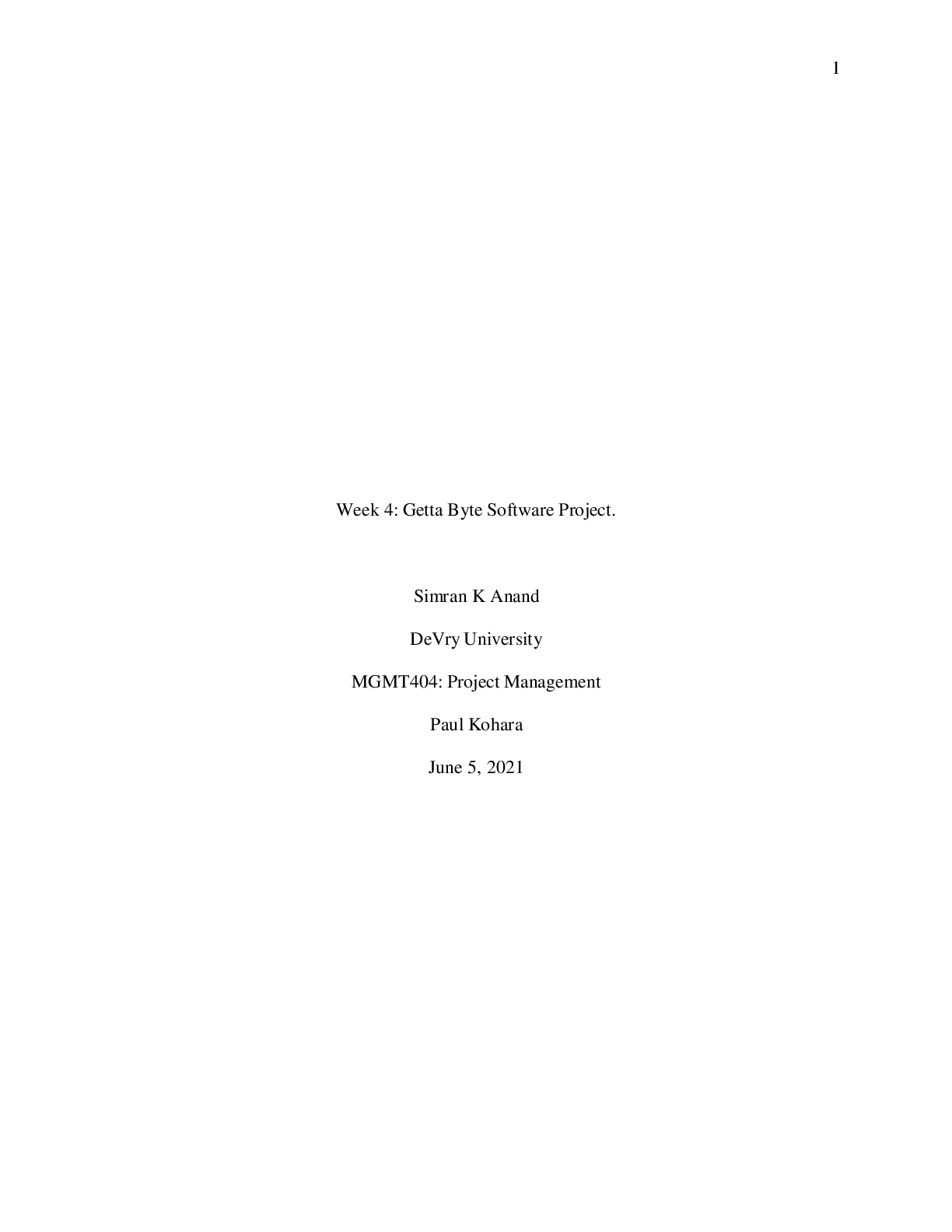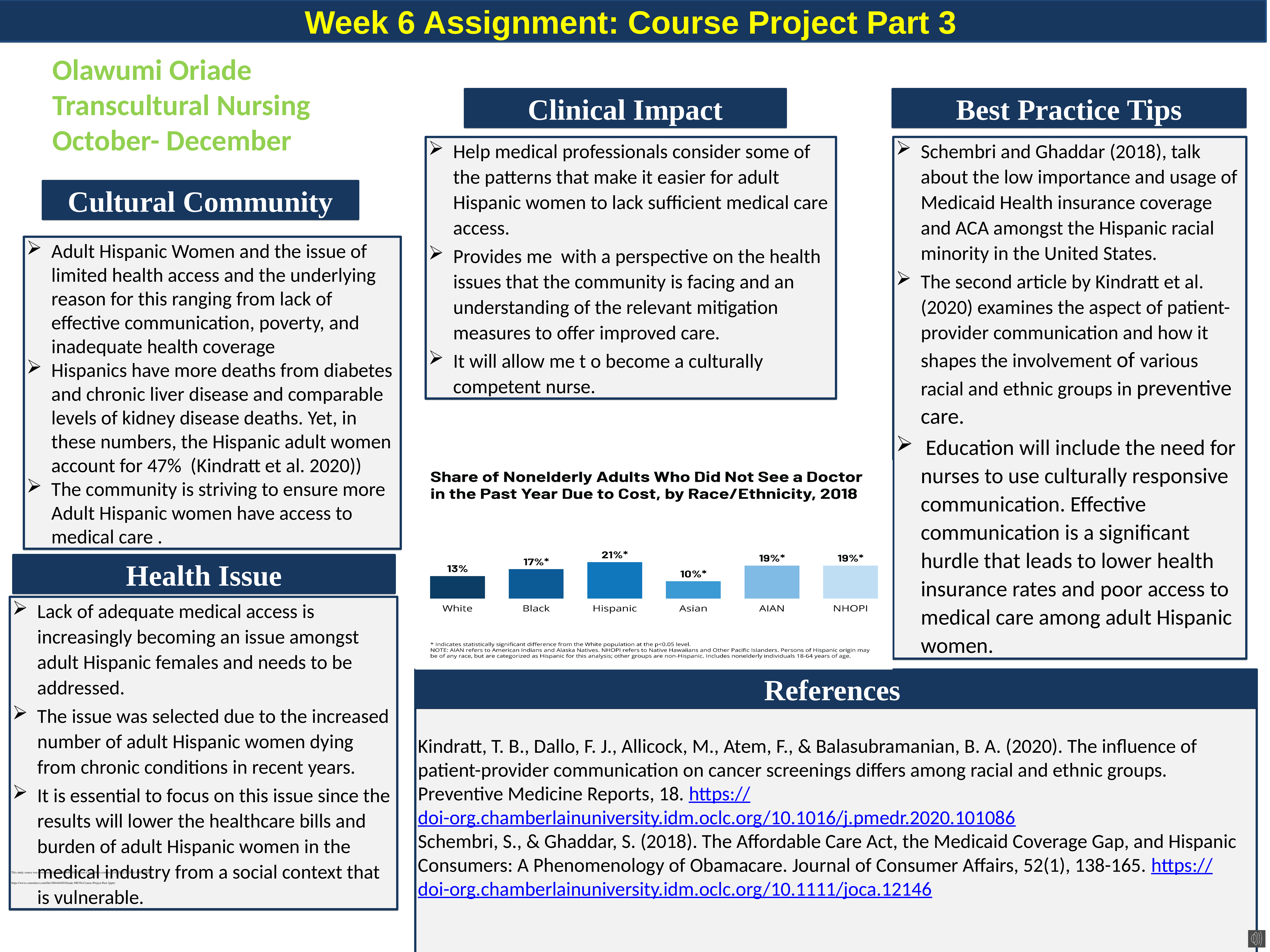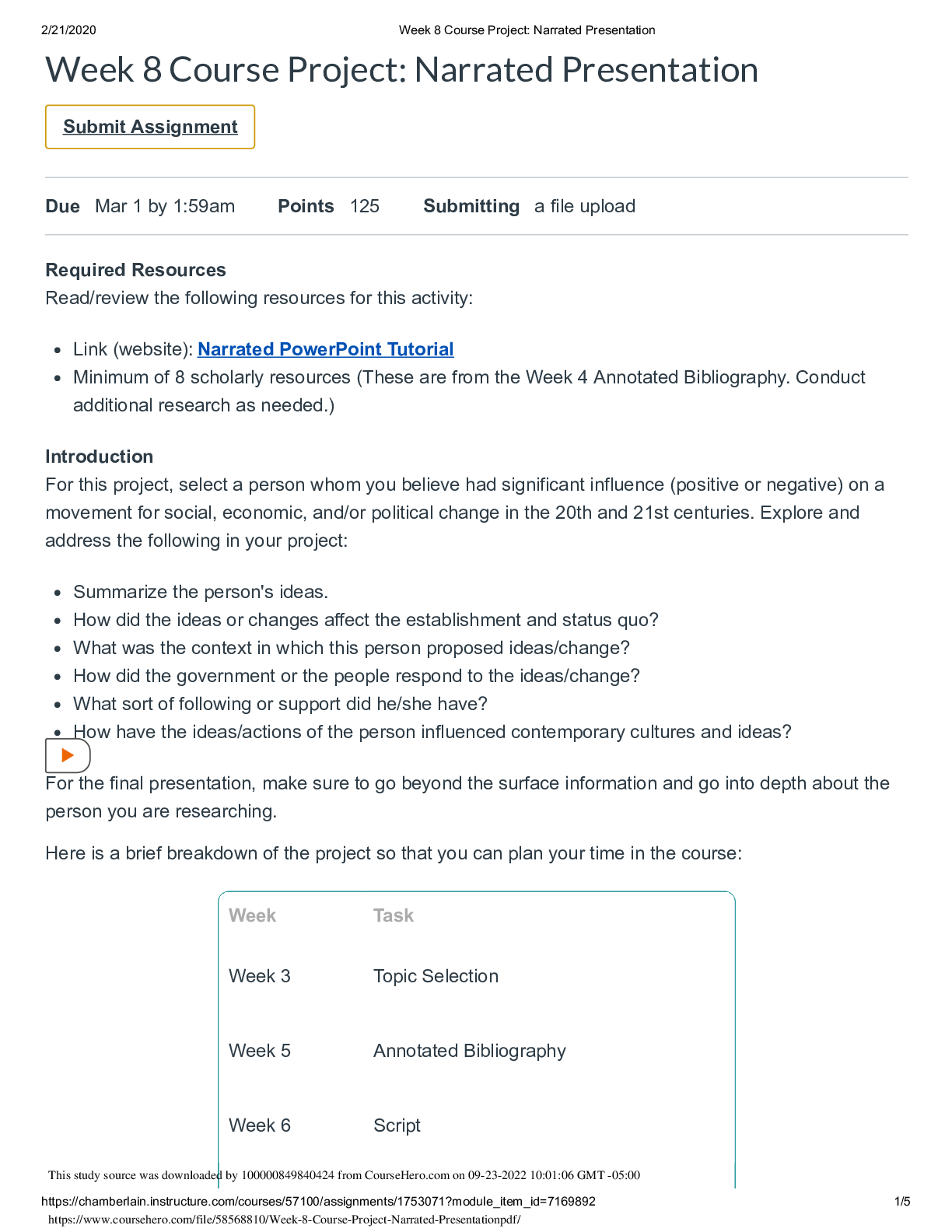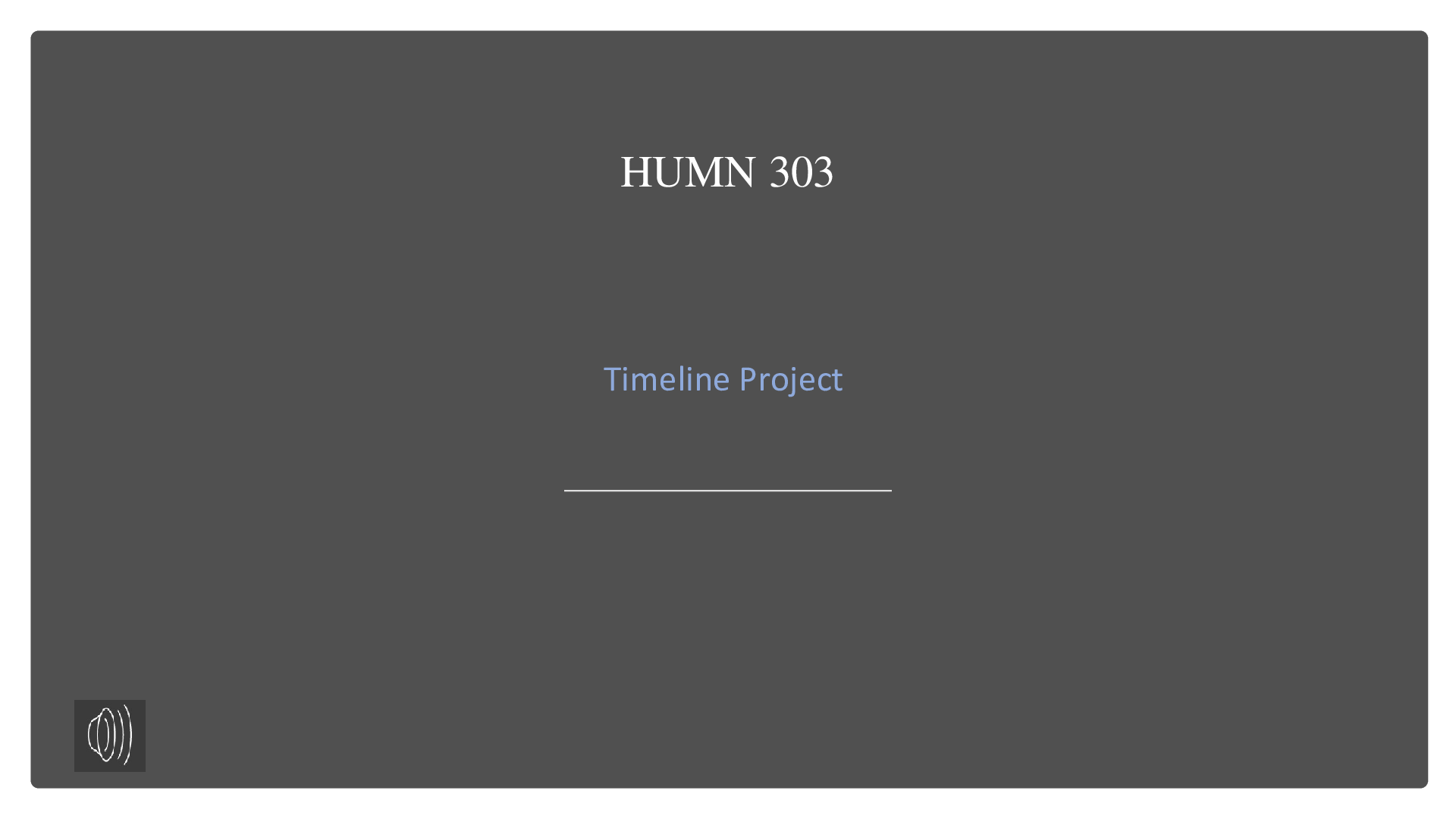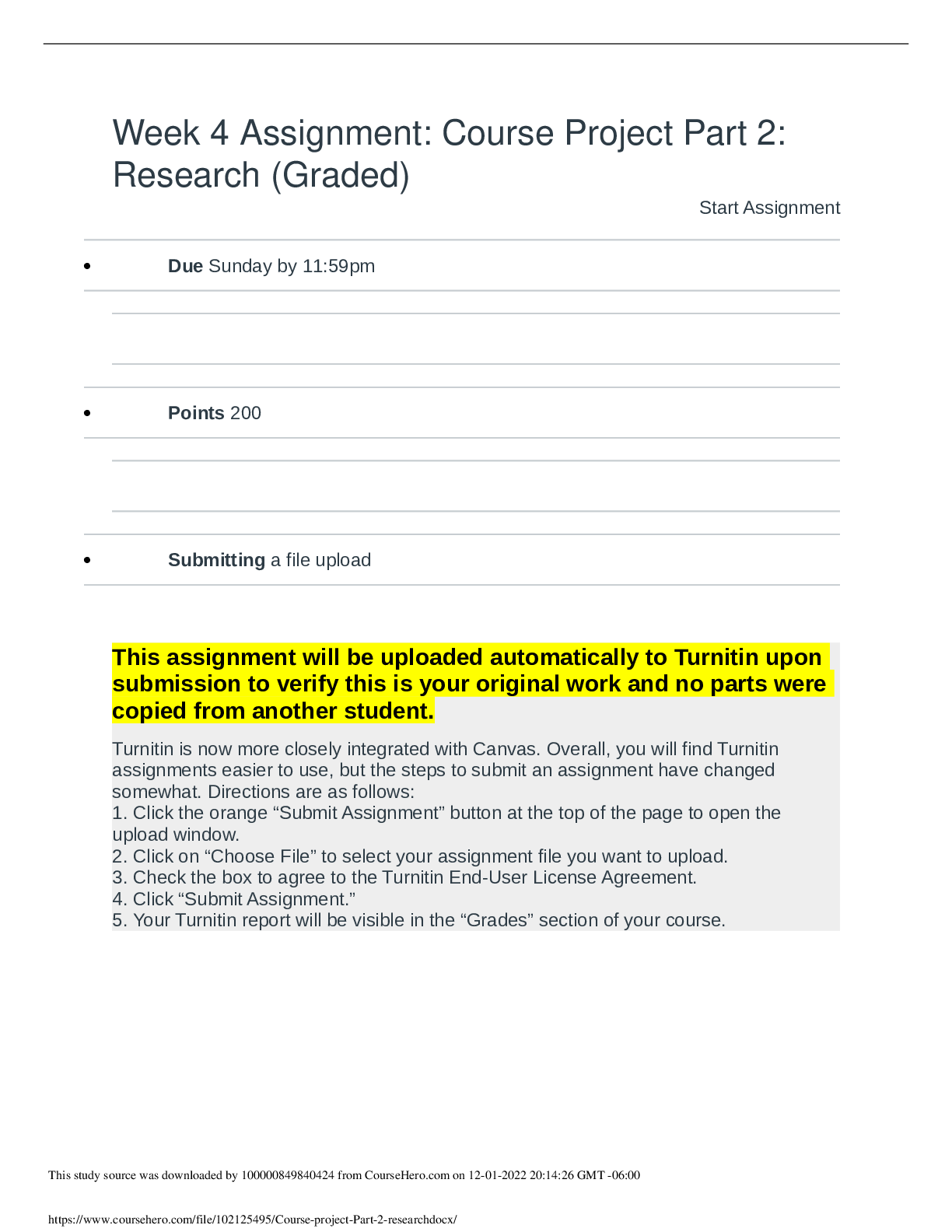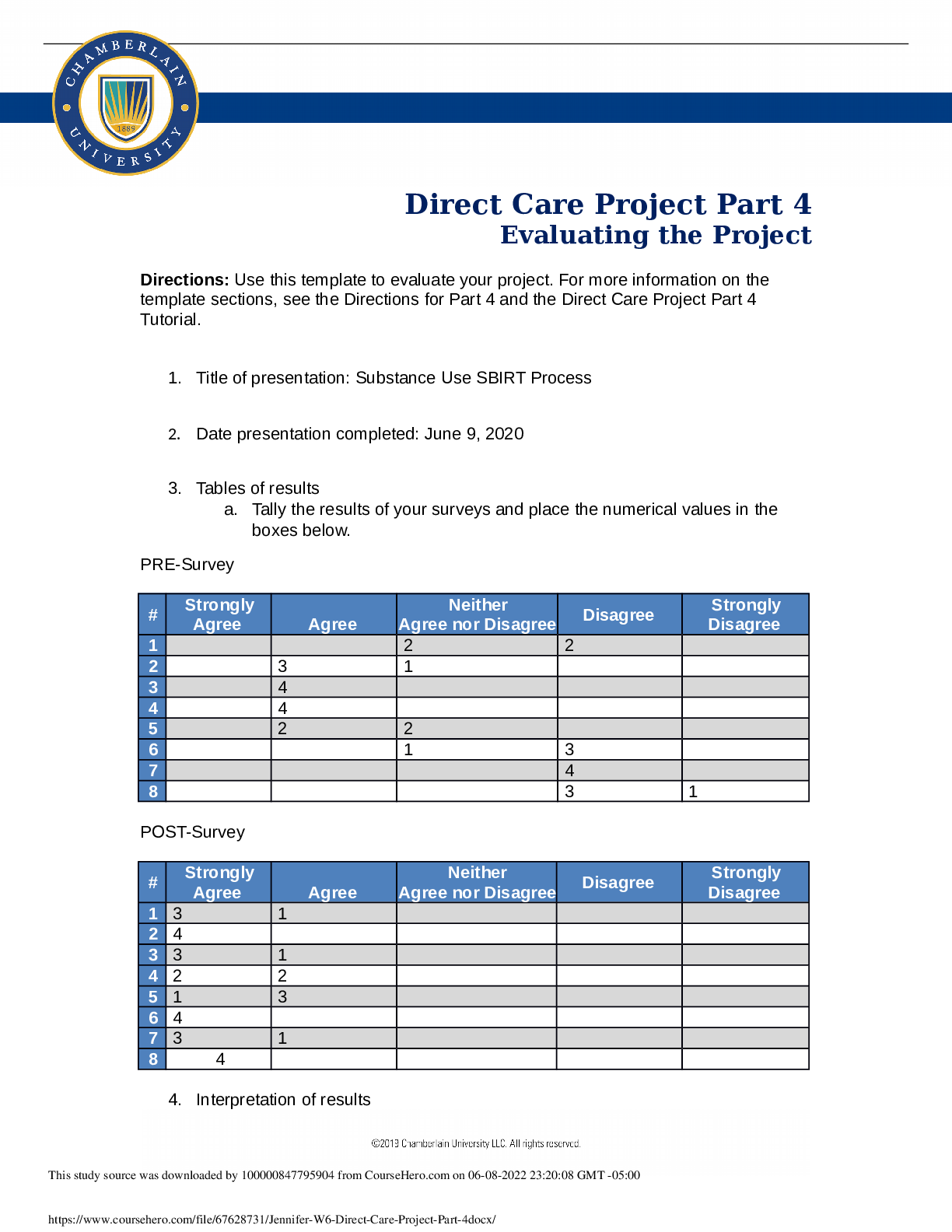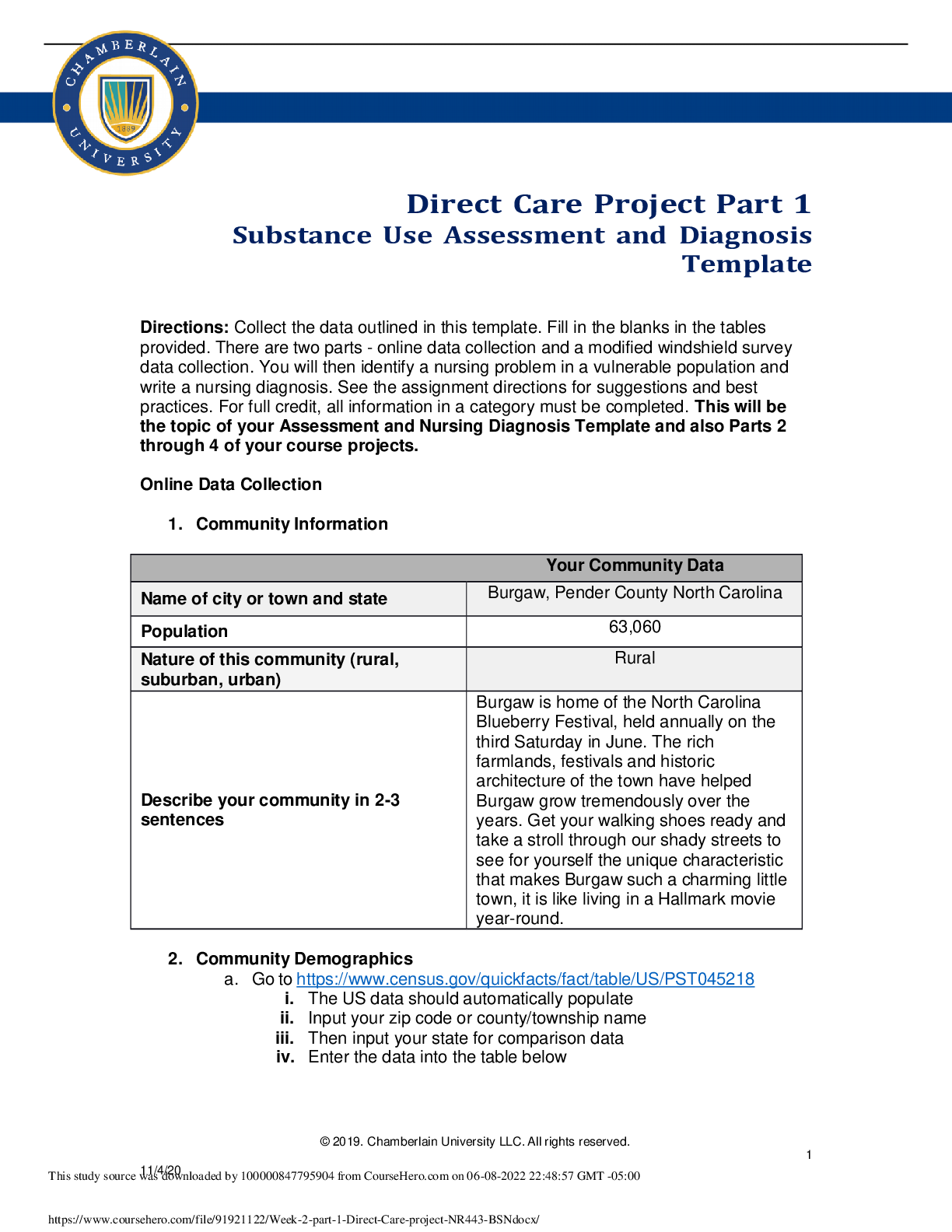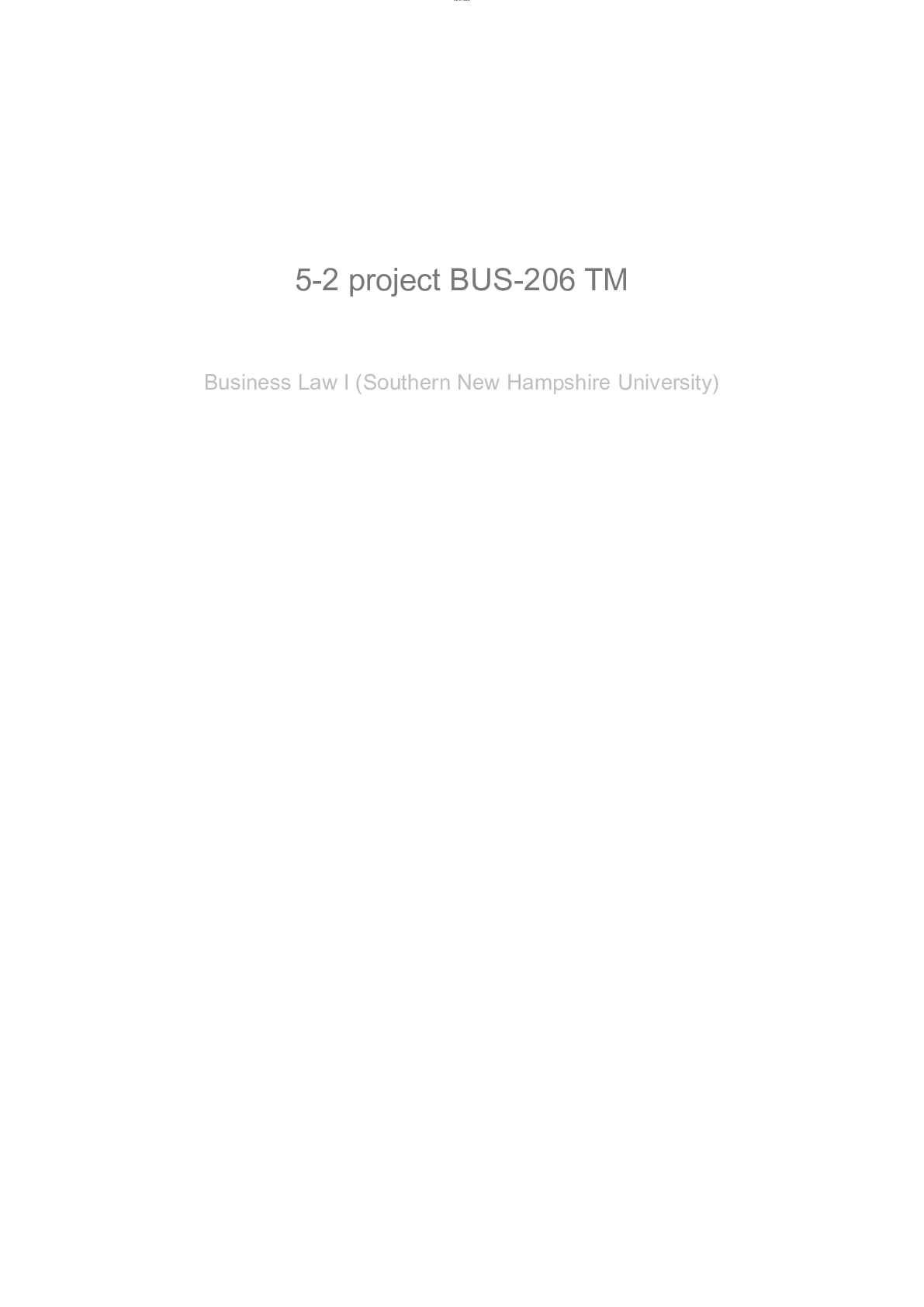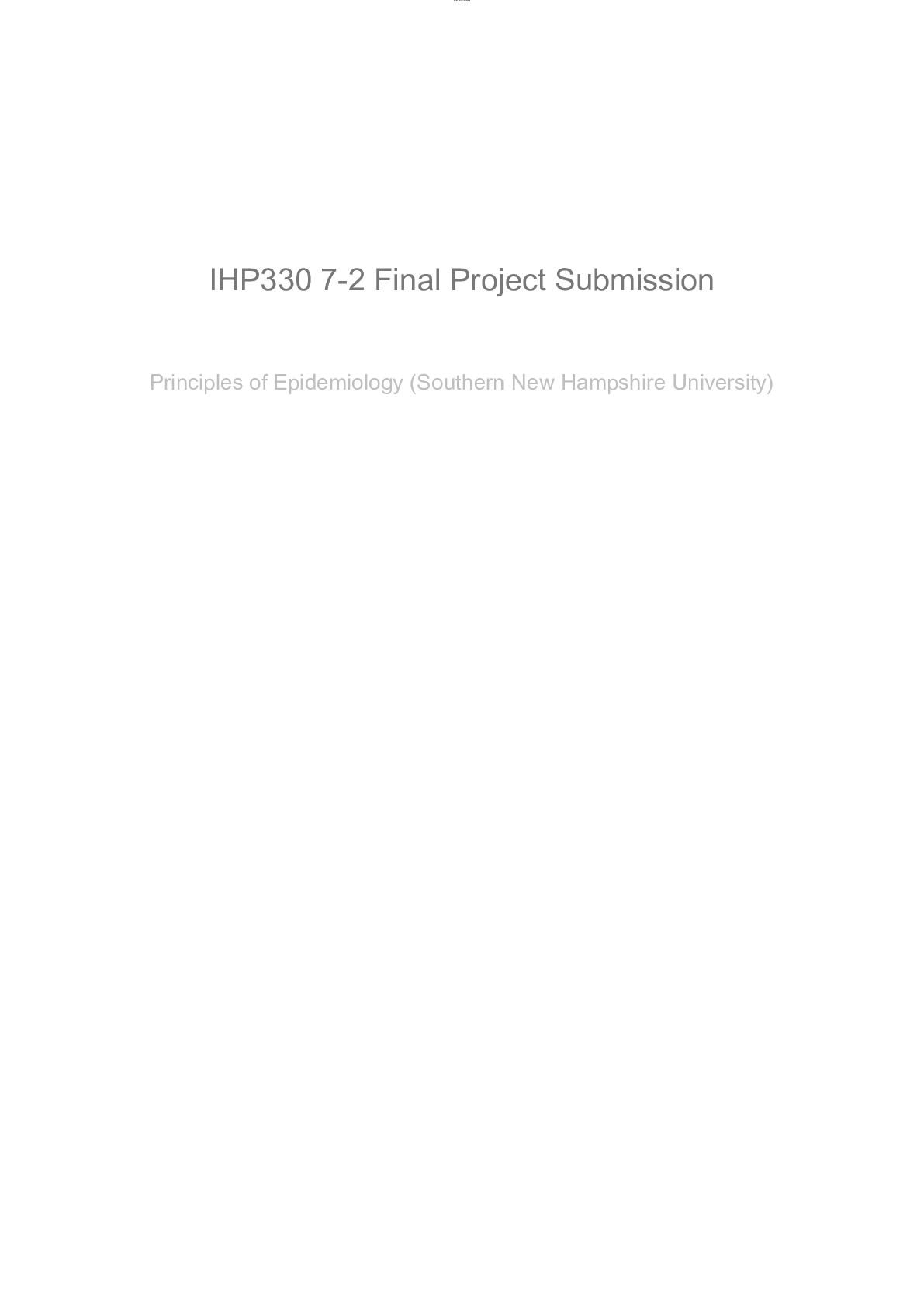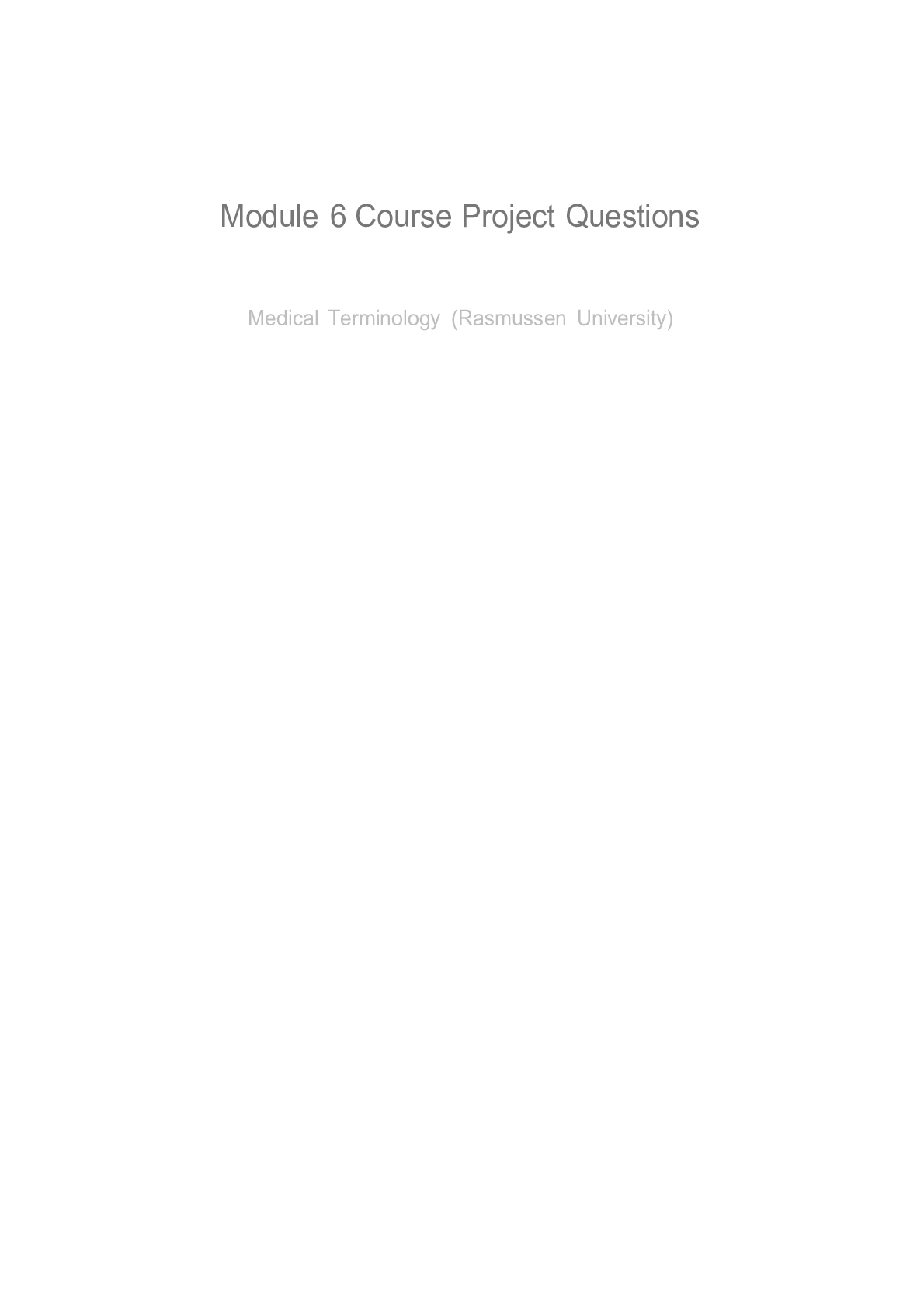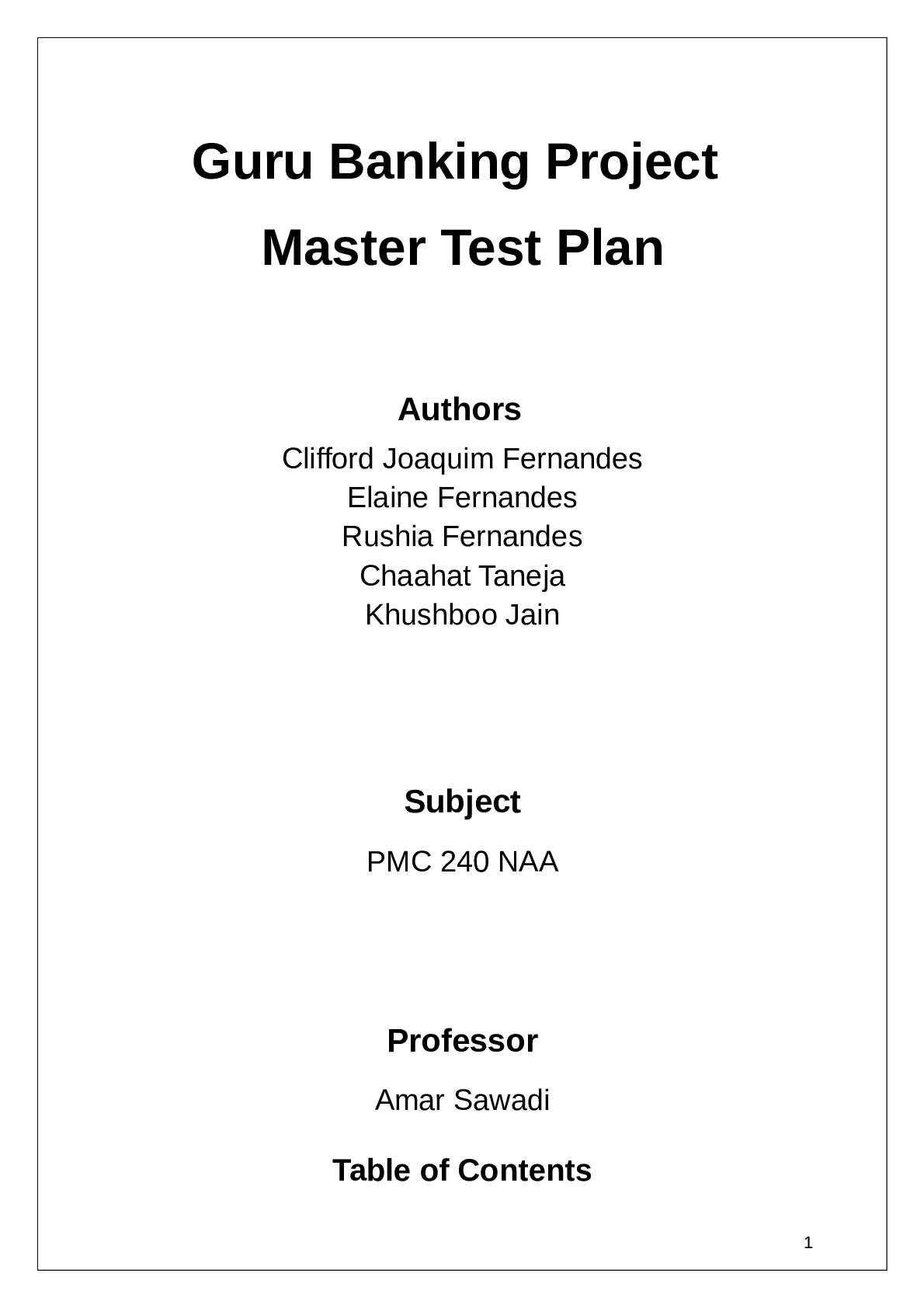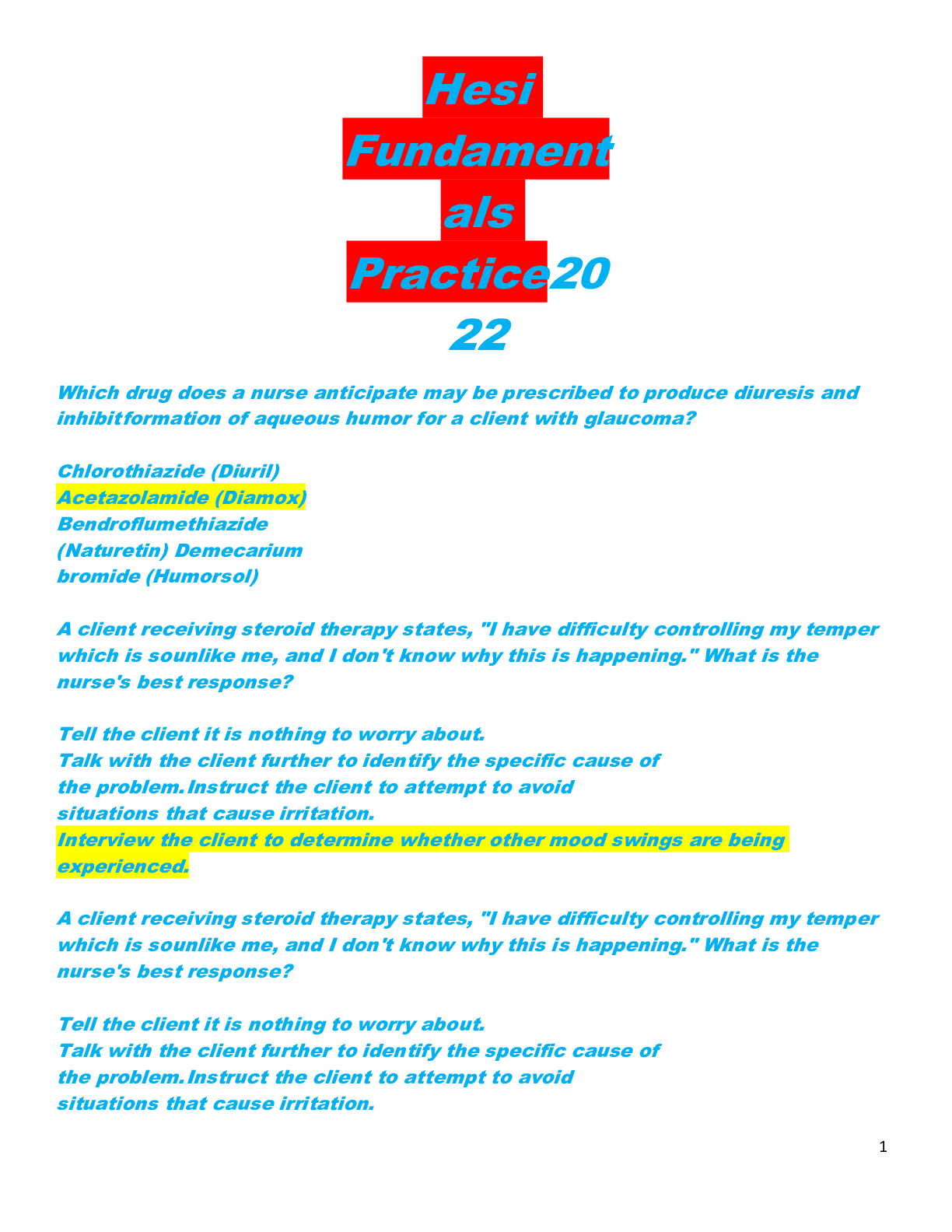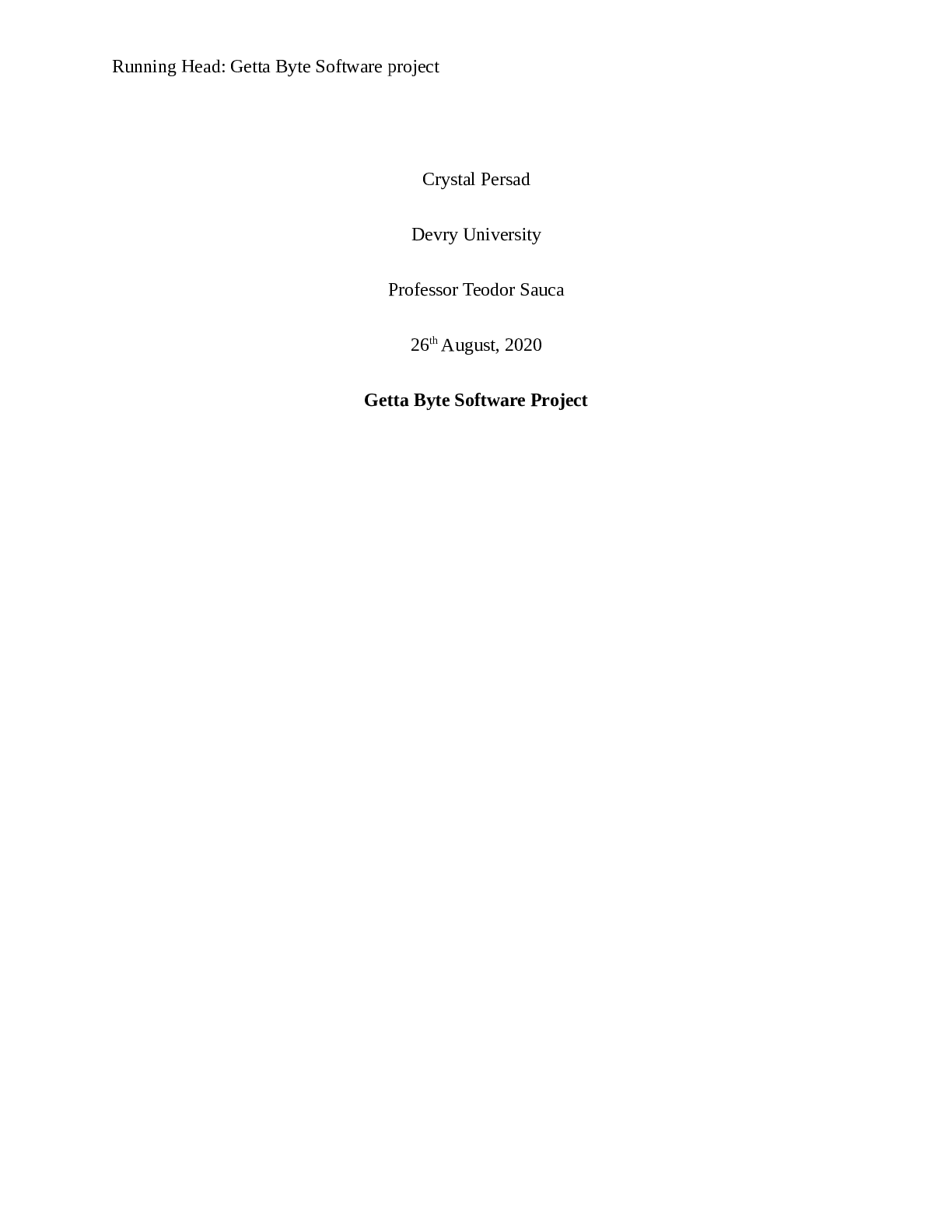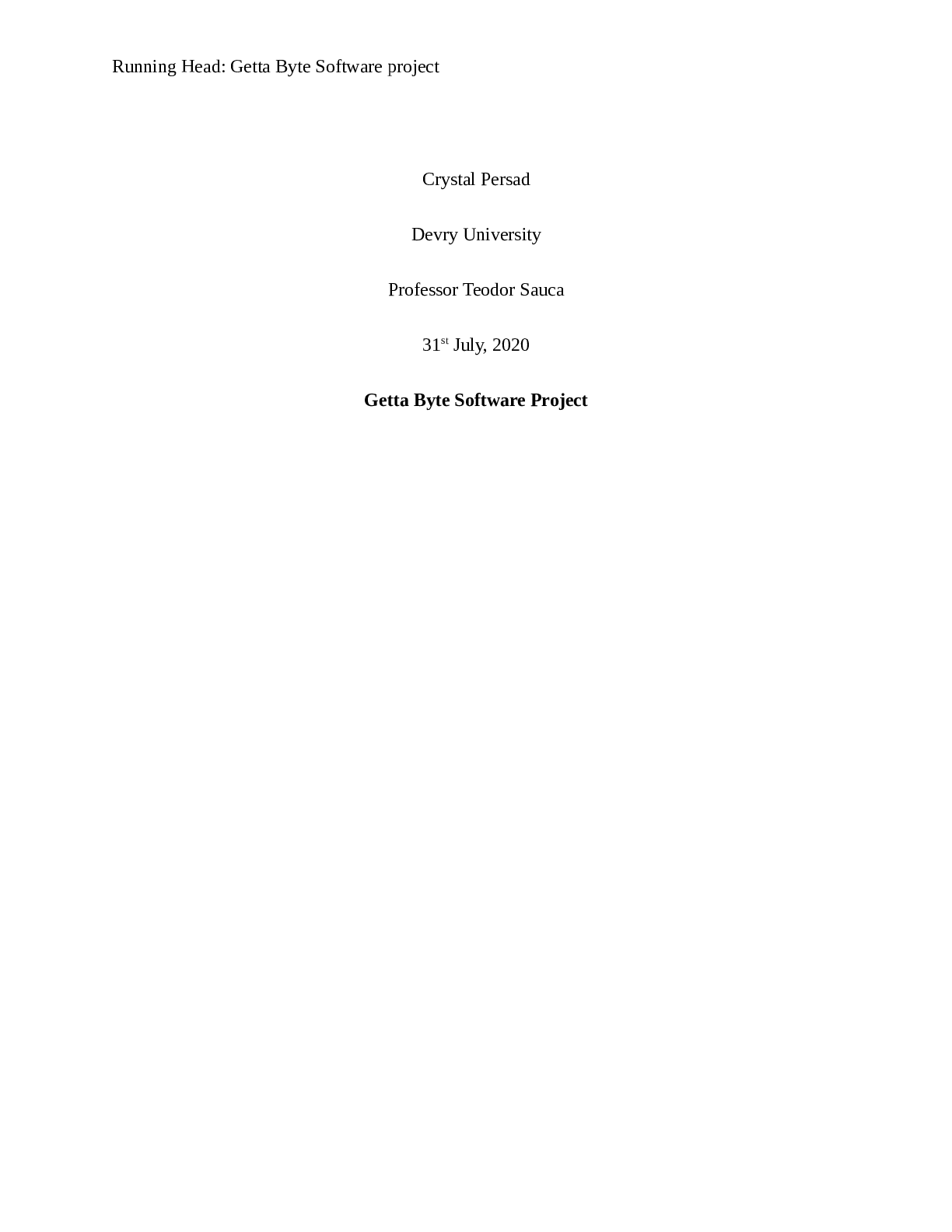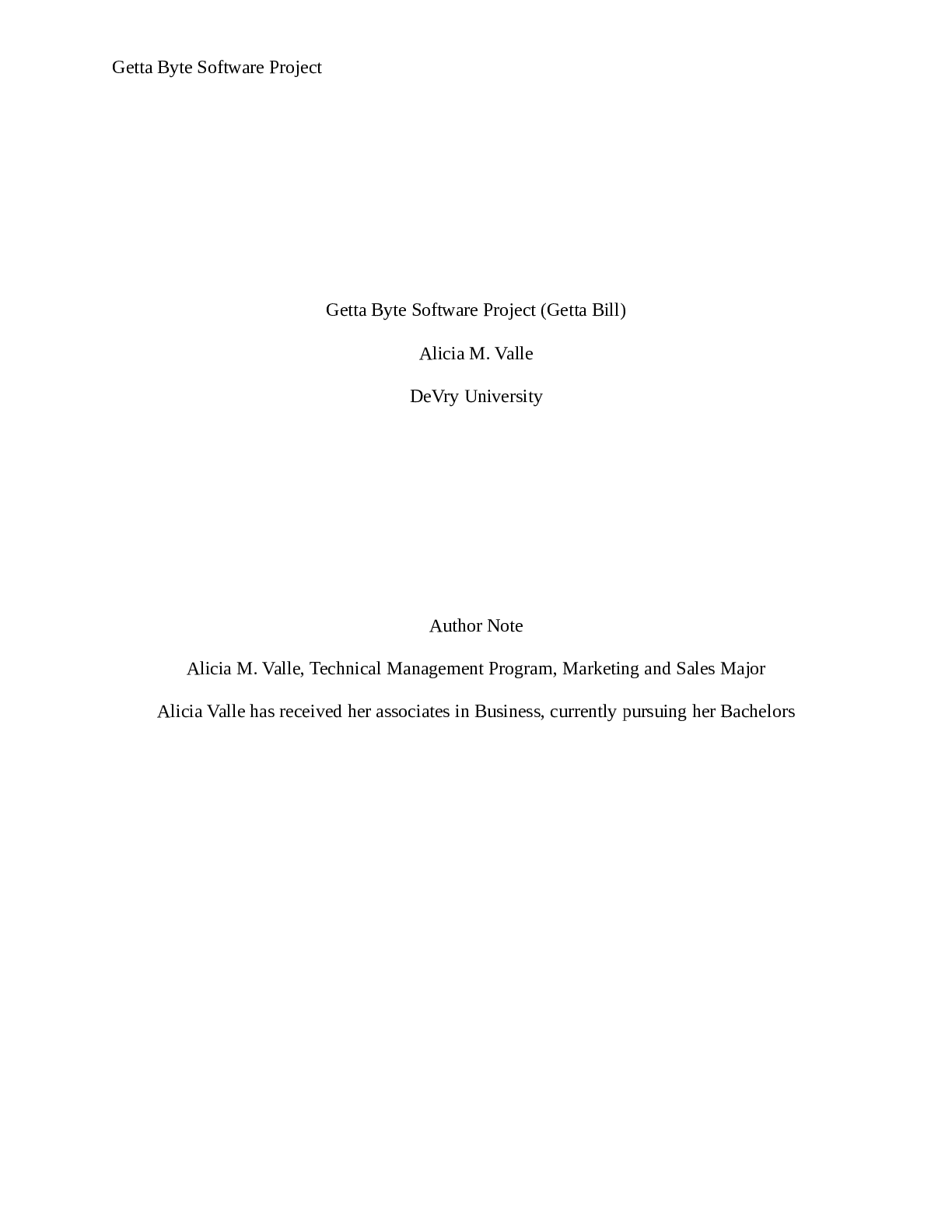Psychology > PROJECT FINAL > PSYC-110N Week 8 Final Project: Psychology Yearbook (Already GRADED A) (All)
PSYC-110N Week 8 Final Project: Psychology Yearbook (Already GRADED A)
Document Content and Description Below
PSYCHOLOGY YEARBOOK PSYC 110N – Psychology Introduc tion • I've mastered the fundamentals of psychology during the last eight weeks. I know a lot more about behavior... and mental illnesses now than I did before this class. This presentation is an overview of everything I've learned during the last few weeks. I used what I considered to be the most important for each issue. My presentation demonstrates what I learned and retained from each course outcome. 1900s: Human Behavior • Outcome 1: Assessment of theoretical perspectives on human behavior, including physiological causes for behavioral changes. • In the 1920s, John B. Watson was the first major psychologist to use the behavioral approach. (Feldman, 2019) • Humans might be comprehended by monitoring their conduct, they believed. • Watson thought that a person's surroundings might bring out any type of conduct. 1900s: Consciousness • Outcome 2: Examine the sensation and perception processes, as well as the factors that influence consciousness. • Dreams were used by Sigmund Fraud to gain insight into the unconscious mind. (Feldman, 2019) • Fraud wrote a book about dream interpretation. • In his book, Fraud discusses how dreams can be interpreted to understand how the unconscious mind perceives the world and what is being replayed. (Fraud, 1900) 2000s: Human Behavior • Many things, such as terror attacks or mass shootings, are investigated based on one's behavior. • Why people do what they do is typically considered as a case of nature vs. nurture. • People's behavior is also influenced by where they are from in the globe and what they are taught from an early age. 2000s: Consciousness • Dreams are used to gain insight into a person's subconscious mind and what is going on inwardly. • Our subconscious mind can reveal a lot about how we feel and recall things. • The book by Sigmund Freud aids in deciphering what we don't grasp about the meaning of our dreams. 1900s: Stress • Examine the physiological and psychological effects of stress, as well as various stress management approaches. • Soldiers began to develop an illness known as shell shock during the world wars. • Because of the stress produced by the conflict, the soldiers returned home unable to operate. (Jones, et al., 2012) • Shell shock not only caused bodily problems as a result of the stress, but it also had a psychological influence on them once they returned home. 2000s: Stress • Shell shock is now termed as post-traumatic stress disorder (PTSD) • Between 10% and 18% of soldiers suffer from PTSD, and the US spends $3 million to assist treat them. 2019 (Feldman) • PTSD is becoming more common among first responders and others who have witnessed terror incidents. • Because the person is unable to cope with the stress created by the occurrence, PTSD might lead to suicide. • Not only does it influence the mind, but it also affects the body, causing loss of appetite and insomnia. 1900s: Learning & Memory • Outcome 4: Demonstrate learning and memory models. • A Russian physiologist, Ivan Pavlov, did a study employing dogs to investigate stomach acid secretion and salvation (Feldman, 2019) • He discovered that dogs do not respond to hunger, but rather to learned behaviors about when they will be fed. • This experiment demonstrated how humans and animals are conditioned into habits by continuously repeating them. 2000s: Learning & Memory • What Pavlov discovered has been used to learn about human memory and behaviors. • Everyone nowadays lives in a revolving door of habits that they engage in every day from the moment they get up until they retire to bed. • When it comes to memories, psychologists use them to help people with mental illnesses comprehend when everything started for them. 1900s: Motivation & Personality • Outcome 5: Examine important motivational and personality theories. • Maslow's hierarchy of needs describes how some wants must be addressed before others can be met. 2019 (Feldman) • The hierarchy starts with the most basic need of food and water and progresses to self- actualization. • Personality, according to Freud, is founded on the unconscious part of our mind that we are unaware of (Feldman, 2019) • Freud thought that personality and behavior stemmed from the unconscious mind. • Today's motivation has to do with money and the economy rather than the wants and requirements of the individual. • Today's personality includes who a person associates with during their adolescence years and beyond. • Maslow's hierarchy explains not only why people do what they do to meet their needs, but also why we as humans prioritize certain needs over others. • Describe the major physical, cognitive, and social developmental changes that occur from childhood to maturity • To better understand when certain features of a person grow, psychologists began to research what changes occur at each stage of life. • Humans learn basic skills such as talking and walking during their early years, as well as grow swiftly and develop motor skills. • Humans begin going to school in their childhood to develop social skills and to be placed in an educational context. • Puberty happens during adolescence, and a person's identity is revealed. • Adulthood is the time when people start a family, and their bodies start to slow down as they become older. • Understanding how people why something goes wrong along the process. • Doctors currently look at what was examined and noted to see how we should develop during specific time periods in our lives. • It also aids in recognizing when mental problems manifest themselves at different phases of life. 1900s: Mental Disorders • Outcome 7: Describe the various forms of psychological problems, schools of thought on possible causes, and how society reacts to people who suffer from mental illnesses. • Mental illness affects a person's thinking, feelings, and moods, making it difficult for them to operate daily. (Mental Health) • According to psychologists, humans are possessed by the devil, which is the cause of their disorders. • During this time, people were admitted to mental hospitals and treated with electrotherapy while being confined in deplorable conditions. 2000s: Mental Disorders • Mental diseases are better understood and researched today. • Medical, psychoanalytic, behavioral, cognitive, humanistic, and sociocultural perspectives are used to explain the problems that patients are diagnosed with. • There are many effective treatment choices available, ranging from medication to therapy. • People with mental illnesses are stigmatized, because they are viewed as insane and should be institutionalized rather than treated as individuals. Reference • Allen, S., Siegel, D., Begley, S., Kuyken, W., Hunter, J., Sofer, O. J., … Newman, K. M. (2019, October 21). What Awe Looks Like in the Brain. Retrieved from https://www.mindful.org/what-awe-looks-like-in-the-brain/ • Chong, T. (2018, October 22). 5 Insights Into Human Behavior That Will Boost Your Sales and Marketing. Retrieved from https://www.entrepreneur.com/article/321042 • Global population, development aspirations and fallacies]Population mondiale, aspirations de développement et logiques fallacieuses. (2018, February 19). Retrieved from http://www.niussp.org/article/global-population-development-aspirations-and-fallacies/ • Feldman, R. S. (2019). Understanding psychology. New York, NY: McGraw-Hill Education. • Freud, S., & Freud, S. (1995). The interpretation of dreams ; and On dreams: (1900-1901). London: Hogarth Press. • Hopper, E. (2020, February 24). Maslow's Hierarchy of Needs Explained. Retrieved from https://www.thoughtco.com/maslows-hierarchy-of-needs-4582571 • Human Growth and Development - Education and Training Pathway. (n.d.). Retrieved from https://sites.google.com/a/delvalle-isd.org/education-and-training-pathway/human-growth-anddevelopmen t Reference • Ivan Pavlov. (2020, February 20). Retrieved from https://en.wikipedia.org/wiki/Ivan_Pavlov • John B. Watson. (n.d.). Retrieved from https://hberglund210.weebly.com/john-b-watson.html • Jones, E. (2012, June). Shell Shocked. Retrieved from https://www.apa.org/monitor/2012/06/shell-shocked • Mental Health Diagnoses. (n.d.). Retrieved from https://www.naminycmetro.org/diagnoses-mental-health/?gclid=CjwKCAiAy9jyBRA6EiwAeclQh NQfZ0bXmKcNa6G-qpJNwba4xE1Dzlg_0r5JBrxuS-EreF-rbQChRBoC1_4QAvD_Bw • Ph.D., M. C. (n.d.). Lucid dreams: What they are, and how to experience them. Retrieved from https://www.medicalnewstoday.com/articles/323077 • Ross, T., & Davis, M. (n.d.). Identifying, Treating, and Accepting Post-Traumatic Stress Disorder. Retrieved from https://www.wkms.org/post/identifying-treating-and-accepting-post-traumatic-stress-disorder#stream/0 • Shah, P. (2019, July 30). Motivation: The four ways to a happy life. Retrieved from https://www.procaffenation.com/motivation-the-four-ways-to-a-happy-life/ • State. (n.d.). 1930-1950 New Treatments. Retrieved from https://www.sos.mo.gov/archives/exhibits/quest/treatment/1930-1950 Reference • Syeda, S. (2018, May 17). Shell shock cover-up at Passchendaele. Retrieved from https://www.military-history.org/articles/world-war-1/shell-shock-cover-up-at-passchendaele.htm [Show More]
Last updated: 1 year ago
Preview 1 out of 19 pages
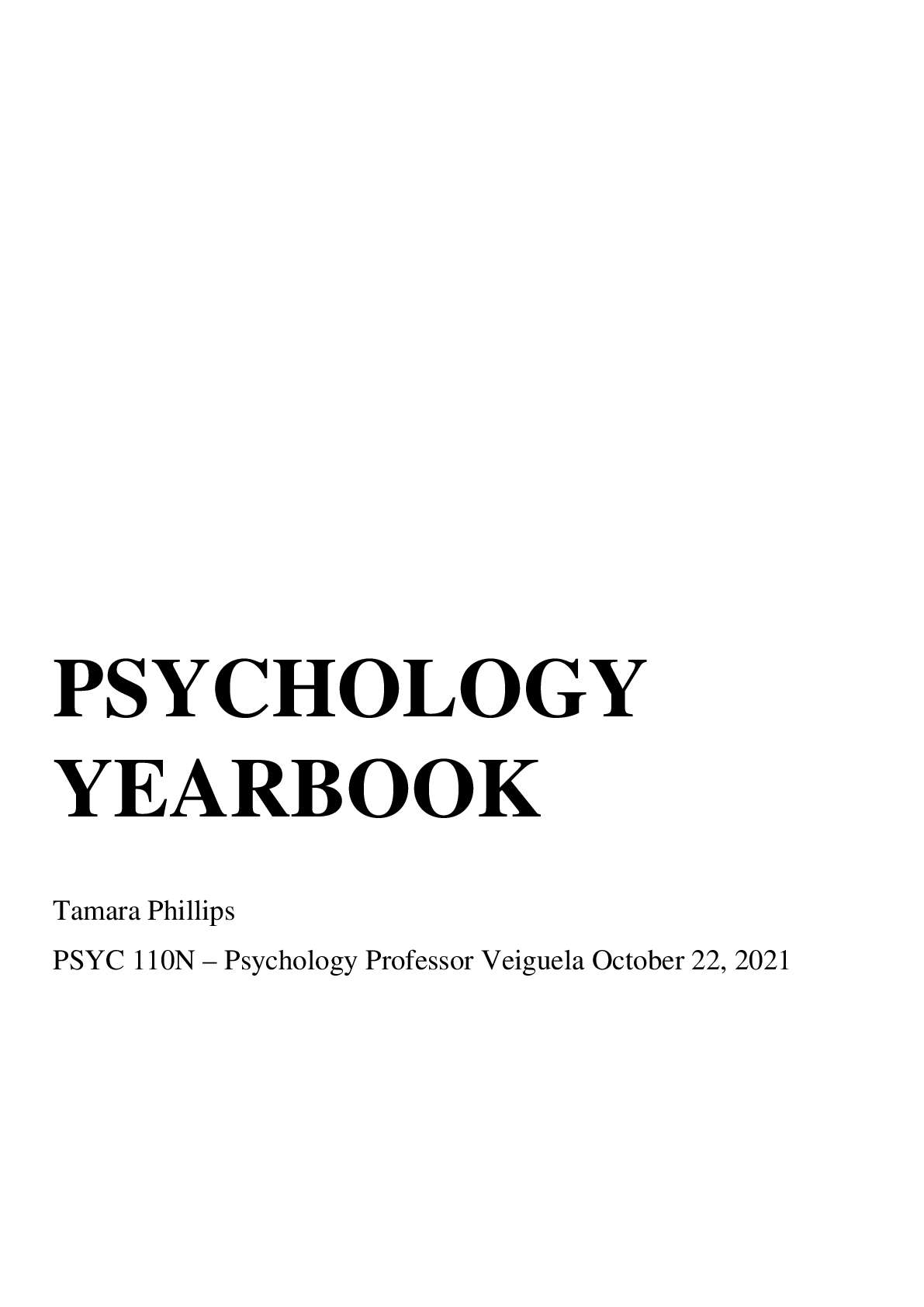
Reviews( 0 )
Document information
Connected school, study & course
About the document
Uploaded On
Nov 10, 2022
Number of pages
19
Written in
Additional information
This document has been written for:
Uploaded
Nov 10, 2022
Downloads
0
Views
106

